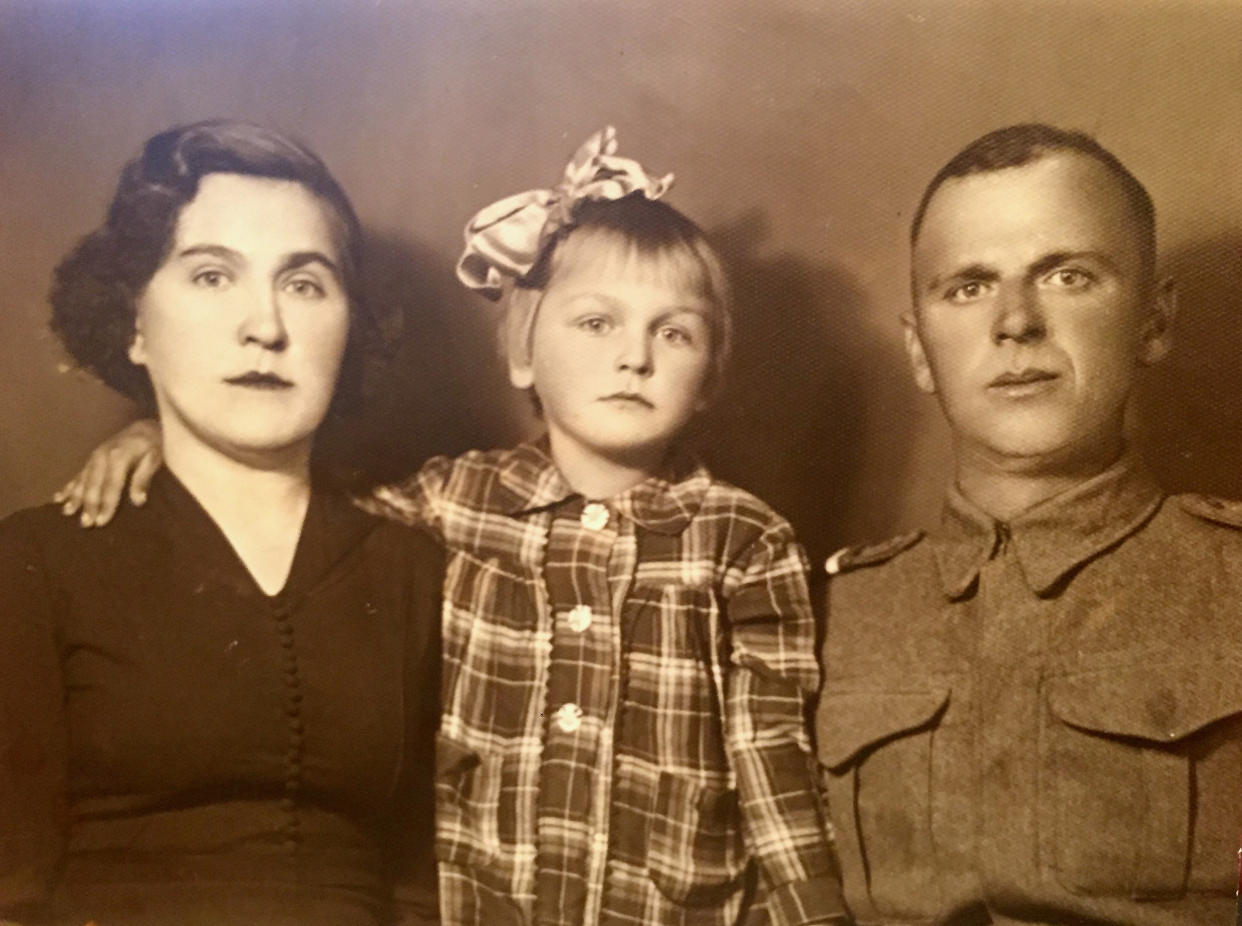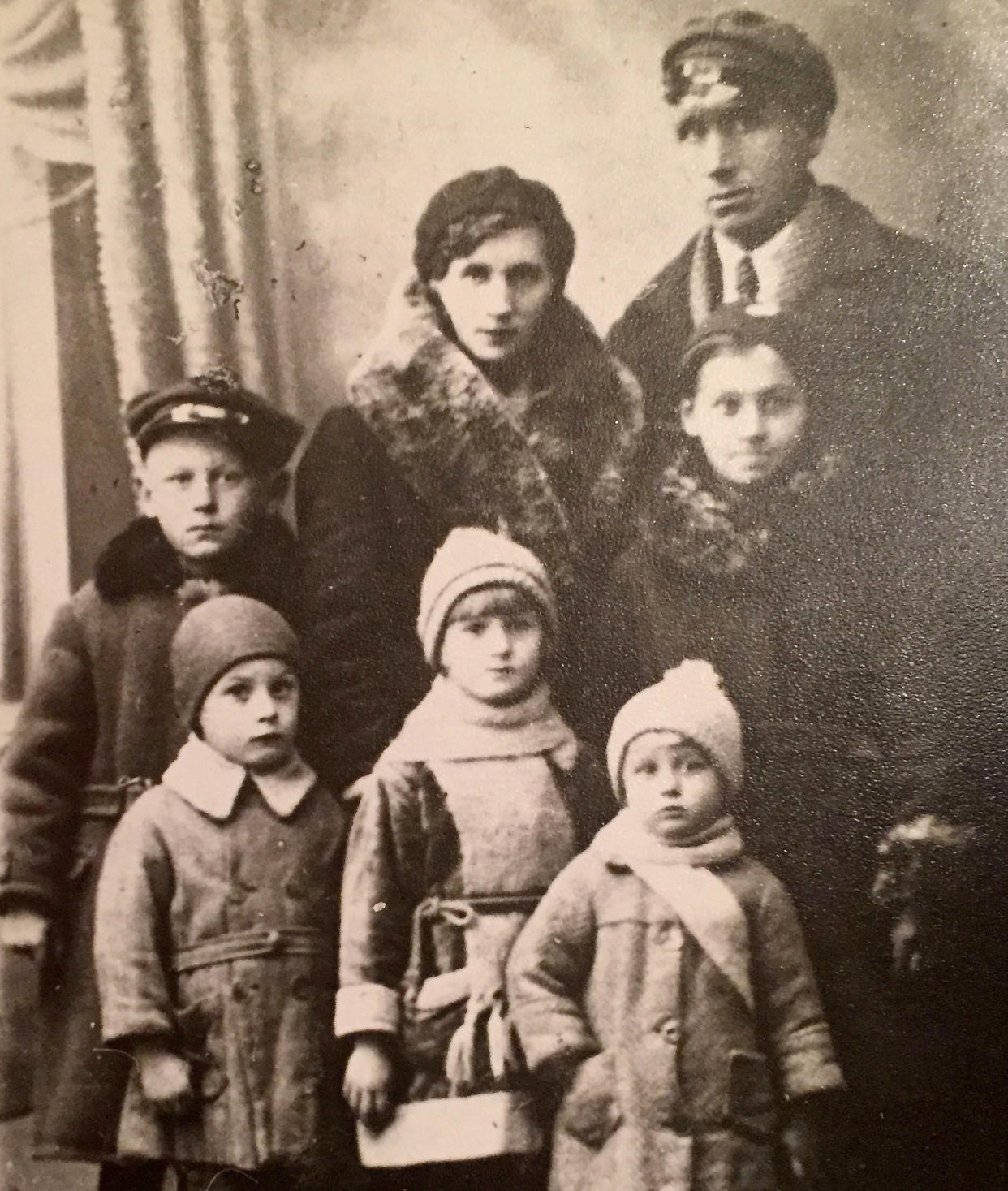Reports of Ukrainians sent to Russian 'filtration camps' startle Stalin survivors
They were children when the Russian soldiers came for them in the dead of winter 1940.
The armed men who barged into their homes and gave them a half-hour to get dressed and pack a bag were called Soviets back then. And in the early days of World War II, they rousted Poles from their homes in what is now western Ukraine and shipped them off to the gulags in Siberia.
For these survivors, reports that Ukrainians are now being deported to "filtration" camps deep inside Russia brought back painful memories of their own ordeals — mixed with deep sympathy for a new generation of victims.
“I was just 3-and-a-half when the Russians came for us in the middle of the night, but I can still remember the sound of them banging on the door with rifles and bayonets and yelling 'Out! Out!” Marie Wypijewski, 85, told NBC News. "They made my father stand with his face to the wall while my mother packed and dressed us in the warmest clothes she could find."

More than a million Poles were sent by Soviet dictator Josef Stalin to Siberia.
Wypijewski's husband, Dennis, 91, said they were branded "enemies of the state" simply for being Polish. His hand trembling with emotion, he said he was shocked that "history seems to be repeating itself."
"I admire the way the Ukrainians have resisted, they have been very courageous," he said. "I never thought we would see something like this happening again. People being thrown out of their homes, losing everything they worked for in one night. People being taken by trains to Russia."
"Serce mi sie kroi," he said in Polish, which means “it breaks my heart.”
Ukrainian ombudsman Lyudmyla Denisova first sounded the alarm that as many as 400,000 civilians were being taken by force to Russia after Putin’s troops began laying siege on March 2 to the now-destroyed city of Mariupol.
Questioned about the “filtration” camp reports, the Russian Embassy in the United States denounced the Ukrainian claims as “lies” and has called the departure of more than 380,000 people from Ukraine to its territory "evacuations."
But Ambassador Bathsheba Nell Crocker, the U.S. representative to the Office of the United Nations and Other International Organizations in Geneva, wrote in a letter that they have “credible information that indicates Russian forces are creating lists of identified Ukrainians to be killed or sent to camps following a military occupation.”
In an interview last Sunday with MSNBC’s Jonathan Capehart, U.S. Ambassador to the U.N., Linda Thomas-Greenfield, said she could not confirm that Russia was operating “filtration" camps but said the Russians had proposed opening escape corridors that would steer Ukrainian civilians to Russia and Belarus.
“The Ukrainians clearly objected to that,” she said. “To force people from Ukraine to go into Russia is absolutely unacceptable; it’s unconscionable. And again, it’s something we need to confirm, but I don’t put it past the Russians to take such a horrific action.”
While NBC News has not confirmed the existence of “filtration” camps, diplomats from two NATO countries who spoke on background said Putin appears to be terrorizing Ukrainians with the same tactics that Stalin used on Polish civilians when he and Germany’s Adolf Hitler started World War II in 1939 by invading Poland.
“This is a pattern, this is how the Russians behave,” one of the diplomats said. “Deporting thousands of Ukrainians deep into Russia is something Putin would do.”

Dennis Wypijewski said he was 8 when the Germans invaded Poland from the west in September 1939 and recalled seeing their planes bombing the train station in his city, which was then called Dubno.
"I watched from the attic window because I had never seen anything like it," he said.

Two weeks later, the Russians invaded. And by then, Dubno was already teeming with Poles who had fled the Germans.
"They described to us how the German planes were attacking the columns of Polish refugees," he said.
When the Russians came for them, Dennis Wypijewski said that was the start of an epic journey across the sprawling country for him and his family.
He said they were imprisoned in several Russian camps where the barracks were unheated, where food was scarce and where his parents did forced labor at gunpoint felling trees in subzero temperatures.
He remembers the constant cold and hunger. He remembers how they were forbidden to speak Polish at the rudimentary Russian school he briefly attended. He remembers how his brother was accused of stealing food and saved from execution by a Russian Jew who interceded on his behalf with the secret police.
The fate of the exiled Poles changed after the Germans attacked Russia in June 1941 and Stalin switched to the Allied side. They were allowed to leave the prison camps for Iran, where the men became part of a newly formed Polish Army that made its way to what was then Palestine and then fought its way through Italy.
"Iran was like paradise after Russia," Dennis Wypijewski said. "The people were welcoming."
But with their men gone, the exiled Polish women and children were forced to fend for themselves in Iran, or were dispatched to other friendly countries across the globe, just as the Ukrainians are now.
Dennis Wypijewski said he spent his teenage years in a refugee camp in India with his mother and sisters and was reunited with his father in England after the war. He said they could not return to Poland because the Soviet-backed communists had taken over and his home was gone.
"We were very lucky, though," he said. "All of us survived the war and there were very few Polish families that could say that."
Marie Wypijewski said her family was not as lucky.
Accused of being wealthy landowners because her father had bought a farm in the village of Bortnica with money he earned toiling in a Chicago slaughterhouse, she said her family was rousted from their beds by the Soviet secret police and sent to Siberia in packed box cars.
"There was no food, no bathrooms and it was very cold," she recalled. "We traveled like this for weeks to Siberia and if somebody died their body was just thrown from the train."
Her 2-year-old brother, Wilus, died from dysentery shortly after they arrived at the first of several Siberian prison camps.
"He was buried by the train tracks," she said. "My mother survived the war but never got over losing her only son. I never wanted to be an only child."
Typhoid took the lives of her grandparents after they made it to Iran and nearly killed her as well, she said.
And when the war finally ended, she, like hundreds of thousands of other displaced Poles, landed in Chicago. There she met her husband and raised four daughters. They now have 11 grandchildren and two great-grandchildren.
"We lost everything and had to start over again," she said. "I'm afraid many of these Ukrainians will have to, as well."
